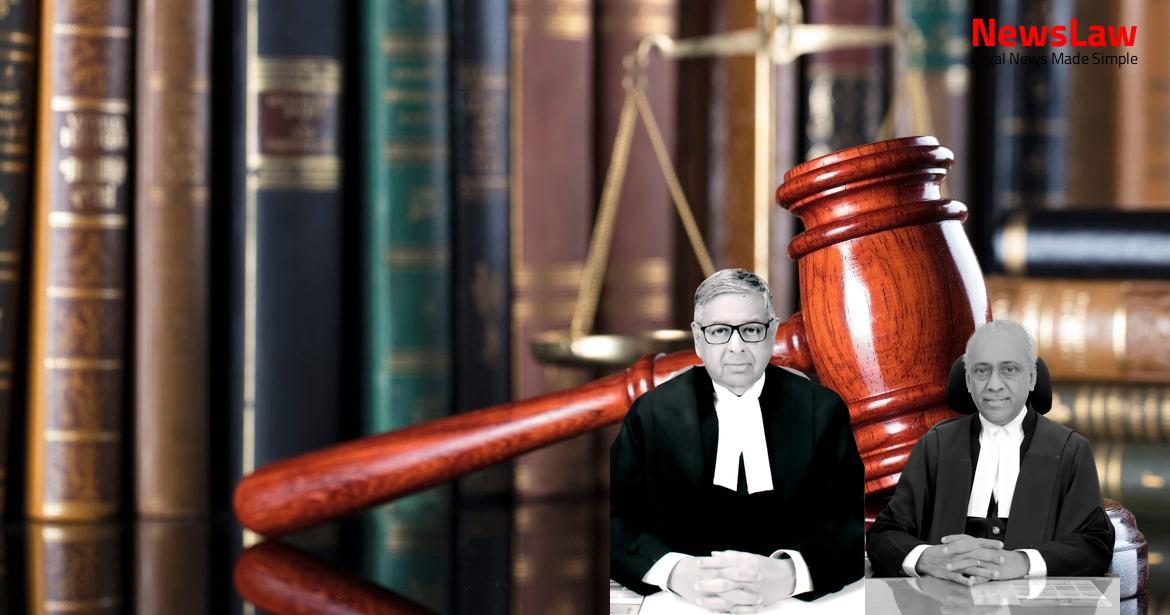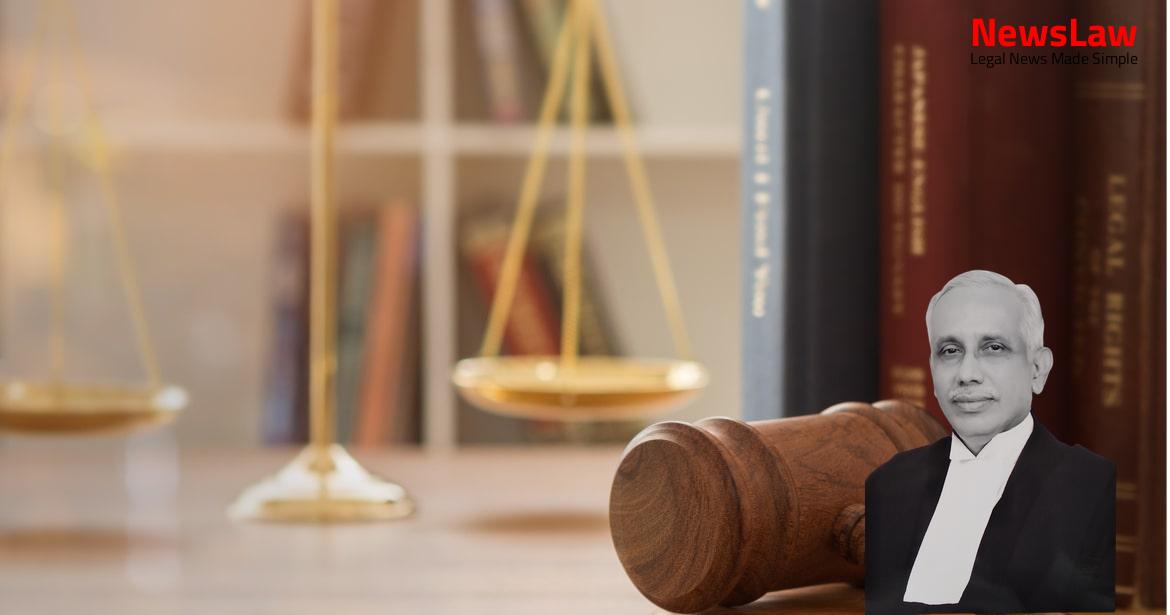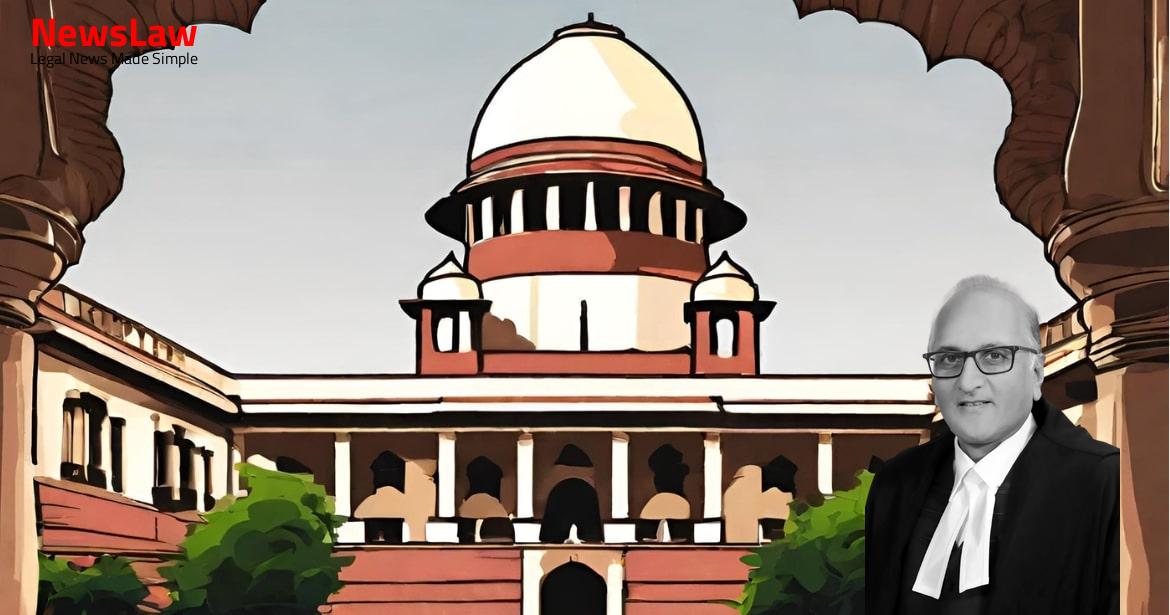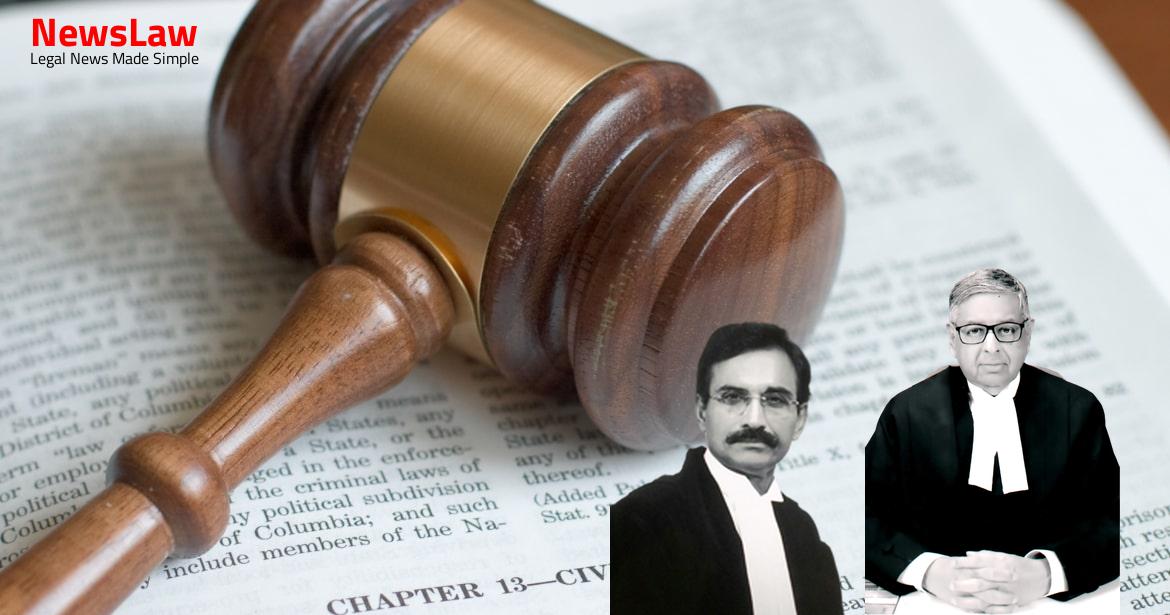In a recent landmark judgment, the Supreme Court of India resolved a jurisdictional dispute in the ONGC vs. Vendor Code case. The case involved complex legal issues regarding arbitration proceedings and the invocation of Clause 27.1 of the contract. The Court’s decision aims to promote swift resolution in alignment with the Arbitration Act, emphasizing the importance of adhering to statutory provisions. Stay tuned for more insights on this critical legal ruling.
Facts
- An arbitration notice was issued, and a Sole Arbitrator, Justice J.C. Upadhyaya (Retd. High Court Judge), was appointed on 21.12.2017.
- A claim petition was filed by the appellant on 02.02.2018 with subsequent amendments granted by the learned Arbitrator on 10.03.2018.
- Challenges were made regarding the contract termination/show cause notice and damages claimed.
- The appellant was blacklisted by ONGC on 15.02.2018 for a period of two years.
- A Section 16 application was submitted to the Arbitrator to address the scope of the arbitration notice.
- A Section 17 application was also filed before the Arbitrator and was separately disposed of.
- A Special Civil Application (Application No 9305/2018) was filed under Article 227 of the Constitution of India before the High Court in Ahmedabad challenging the City Civil Court’s order.
- The Writ Petition was allowed by the High Court, and the Ahmedabad City Civil Court’s order was set aside.
- The High Court identified that the ban order was passed under a General Contract Manual and not under Clause 18 of the Agreement.
- Serious disputes arose regarding the jurisdiction of the Arbitrator due to the ban order being issued under a different provision.
- The notice for arbitration did not initially raise the issue of the ban for two years, focusing only on the illegal termination.
- The Arbitrator stayed the ban order with the condition that it would only be enforced if the appellant lost in the final arbitration proceedings.
- An appeal against the Section 17 Order was filed and concluded by the City Civil Court in Ahmedabad.
- The High Court of Gujarat considered a preliminary contention that the Article 227 petition should be dismissed for not raising any jurisdictional issue.
- The High Court ruled that no stay should have been granted under Section 17 of the ban order, as compensation could be offered later in damages.
- It was determined that the ban order was linked to Clause 18 of the contract, allowing the validity of the office order to be decided by the High Court.
- The High Court dismissed the Section 16 application filed by the respondent after this analysis.
- The learned Arbitrator on 09.05.2018 highlighted that the notice on 02.11.2017 also addressed the imposition of a two-year ban, not solely termination of the contract.
Also Read: Supreme Court Judgement: Determination of ‘Seat’ of Arbitration Proceedings
Issue
- ONGC terminated the contract with the appellant on the ground of equipment not being new.
- Appellant disputed ONGC’s claim.
- ONGC blocked the Vendor Code of the appellant, preventing them from bidding for further bids.
- A Show Cause Notice was issued by ONGC to the appellant regarding potential blacklisting for two years.
- The appellant invoked the arbitration clause in the contract due to disputes between the parties.
Also Read: Union of India v. Arbitral Award: Limitation and Condonaion of Delay
Arguments
- The counsel for the petitioner argued that the High Court did not address the preliminary objection raised before it.
- The notice invoking arbitration must specify all points of dispute and the amount claimed at the time of invocation, as per Clause 27.1 of the contract.
- Serious disputes as to jurisdiction do not amount to lack of jurisdiction.
- Section 5 and Section 37 of the Arbitration & Conciliation Act, 1996 were highlighted, pointing out the restricted appeal rights.
- The counsel emphasized that the Act’s statutory scheme should be considered to deny relief in most cases, despite the provisions of Article 227 of the Constitution.
- Citing case laws like SBP & Co. vs Patel Engineering Ltd. and Fuerst Day Lawson Limited vs Jindal Exports Limited, the counsel stressed the self-contained nature of the Act, barring second appeals and appeals filed under the Letters Patent.
- Under Section 115 C.P.C., a revision would only lie where no appeal lies, and the proviso post-2002 prohibits revision petitions against interlocutory orders.
Also Read: Challenging Rule 5: Case of Mrs. Nalini Chidambaram
Analysis
- The High Court’s judgment in the present case went into the same matter as the Arbitrator in the Section 16 application and contradicted the Arbitrator’s finding regarding a two-year ban.
- The statutory policy of the Arbitration Act emphasizes speedy disposal of arbitration cases and limits judicial intervention.
- The High Court’s intervention in matters handled by the arbitral tribunal under Articles 226 or 227 of the Constitution is impermissible except in cases lacking inherent jurisdiction.
- Challenges against arbitral tribunal orders should await the final award unless appeal rights are available under the Act.
- The importance of adhering to statutory provisions and minimizing judicial intervention highlighted in the Act must be maintained in Article 227 petitions.
- Exceptions to the rule of seeking alternative remedies exist as recognized by the Court.
- Errors of law or misinterpretation do not necessarily imply lack of jurisdiction, especially in matters of arbitral tribunal decisions.
- The High Court’s judgment overturning the arbitral tribunal’s decision was found unsustainable and was set aside.
- Punjab Agro Industries Corporation Limited vs. Kewal Singh Dhillon (2008) 10 SCC 128 is a case where an article 227 petition was deemed maintainable against an order rejecting a Section 11 application for appointment of an Arbitrator.
- This judgment distinguished the earlier case of SBP & Co. regarding the maintainability of the petition.
- In the Punjab Agro Industries case, the court allowed the article 227 petition to challenge the rejection of the Section 11 application.
- In matters governed by this Part, no judicial authority shall intervene except where provided in this Part.
- An appeal shall lie from specific orders to the Court authorized to hear appeals from original decrees of the Court passing the order.
- The specific orders from which an appeal shall lie include refusing to refer parties to arbitration under section 8, granting or refusing to grant any measure under section 9, and setting aside or refusing to set aside an arbitral award under section 34.
- An appeal shall also lie from an order of the arbitral tribunal accepting a plea under section 16 or granting or refusing to grant an interim measure under section 17.
- No second appeal shall lie from an order passed in appeal under this section, but the right to appeal to the Supreme Court is preserved.
- Section 5 of the Arbitration Act states that judicial authority shall not intervene except as provided in the Act.
- Section 37 allows for a limited right of first appeal against certain judgments and orders.
- A specific remedy must be availed of when a liability is created by statute.
- High Court can dismiss writ petitions if an effective remedy is available to the aggrieved party.
- High Court should not bypass statutory machinery by entertaining petitions under Article 226 of the Constitution.
- Alternative remedy does not bar writ petition in cases of fundamental rights violation or lack of jurisdiction.
- Arbitration Act is a self-contained code dealing with arbitration.
- High Court’s jurisdiction under Article 226 must be consistent with the provisions of the enacted statute.
- Only appeals under Article 136 lie against certain orders under the Act.
- Remedy provided by statute must be followed, and general law procedures may be excluded.
- Revisions against final disposals, not interlocutory orders.
- Amendments specify when revisions can be filed.
- High Court should not entertain petitions if an effective alternative remedy is available.
- The High Court cannot correct errors of fact or law under Section 115 unless they relate to the court’s jurisdiction to try the dispute.
- The clauses in Section 115 do not cover the case at hand where the stay order was placed on reference proceedings pending the appeal decision for specific performance.
- Clause (c) also does not apply to the present case as it pertains to illegalities or material irregularities in reaching a decision.
- Errors under Clause 19 of Section 115 refer to breaches of law or procedural defects affecting the ultimate decision, not factual or legal errors post-compliance with formalities.
- The High Court failed to acknowledge the limitations on its power under Section 115 in this matter.
- Mere inclination towards a different decision does not justify interference under Section 115 when no illegality or material irregularity occurred in the lower court’s handling of the issue.
- The High Court treated the revision as if it were an appeal, which was not the appropriate approach for a Section 115 review.
Decision
- The arbitration proceedings should be disposed of as expeditiously as possible according to the mandate in the Act.
- The appeal has been allowed with no order as to costs.
- The decision aims to promote a swift resolution in line with the legislation.
Case Title: M/S DEEP INDUSTRIES LTD. Vs. OIL AND NATURAL GAS CORPORATION LTD.
Case Number: C.A. No.-009106-009106 / 2019



